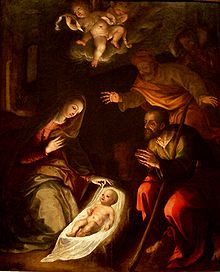The Magi (Mt 2:1-12)
The images on the gable-end of the Justinian basilica in today’s Bethlehem date from the sixth century (between 527 AD and 565 AD). That basilica was not destroyed by the Persians in 614 AD when they laid waste the Holy Land. The reason is that the three wise men depicted there were in Persian clothing, and that was enough to convince the invading Persians that Bethlehem belonged essentially to their faith. When the Moslems invaded Palestine a century later under Caliph Omar- he, having destroyed all the monasteries around, for some reason decided to spare this same basilica in Bethlehem. He promised not to treat it as a mosque, assuring that only individual Moslems would pray there. Christians and Moslems prayed side by side there for a long time (E.Hoade, Guide to the Holy Land, Jerusalem 1984, p.391;Clemens Kopp, The Holy Places of the Gospel, Herder, 1962, pp. 33-4). Details like these may help us to to appreciate epiphany as the universal revelation of Christ who brings peace.
Universal witness
It is of great interest to know how the early Church came to make converts so successfully. People accepted Christianity in a world of competing gods and moral-ities. They came from despair and wanted hope; they were sick in mind and heart and needed health; they were lonely and wanted comfort. They could not get these things by reading books, for mostly they could not read. Christianity was accepted principally because of the Person of Jesus; people found in him the physician of their souls. The faith was lived out in small communities in which members found meaning and purpose for life. Pliny the Younger (62-113 AD) as Roman governor of that part of the world (Bythinia-Pontus, today’s Turkey) wrote of Christians to the emperor Trajan: “[This] my informers tell me was the whole of their crime or mistake, that they were accustomed to assemble on a stated day before dawn, and to say together a hymn to Christ as a god, and to bind themselves by an oath (sacrament- not to any crime but the contrary)-to keep from theft, robbery, adultery, breach of promise, and making free with deposits. After this they used to separate, and then to meet again for a meal, which was social and harmless. …I felt no doubt that, whatever might be the character of their opinion, their stubborn and inflexible obstinacy, they deserved punishment. However – Pliny adds – that when trying to compel them to offer wine and incense to the emperoror’s image or curse Christ “nothing can compel a [true] Christian to do any of these things” (Quoted in J.H.New-man, The Grammar of Assent, Image Books, New York, 1955, p.363).
Christianity was not preached just for the good of the people who preached it. It was the living out of the promise to Abraham in Genesis (12:3):‘and by you all the families of the earth shall bless themselves’ (RSV). The promise was intended for all as good for all. It was an epiphany for anyone who entered it. Slaves and masters were both looking for the meaning of life. It was not just an intellectual quest; it was about the purpose of life lived as a way of life. The groups loved each other; they had the same values. They respected each other totally. They worshipped together and heard the same narratives and ideals together Sunday by Sunday in the same place. They supported each other by their presence; and sharing their gifts, their skills and their genius. They learned forgiveness and mercy. It is enshrined in the Our Father and in the Eucharist.
To this day the local Church lives like this, making an epiphany of values by con-stancy, fidelity and open generosity to all. Christians do not look to the State for ideals. Committed believers are delighted when they receive support for their ideals. But they do not wish to worship at the shrine of fame, money, acceptance or social significance. Where they can exert influence for good they do so, but they cannot force it. When Christians are not supported there are many martyrs to bear witness to the price they pay for their values, as past history and present reality daily displays.
Spreading the Faith
This is how Cardinal Newman reflected on the long and chequered history of the Church: [He wrote that] “it imparted an intelligent notion about the Supreme God to millions who would have lived and died in irreligion, that it has raised the tone of morality wherever it has come, has abolished great and social anomalies and miseries, has elevated the female sex to its proper dignity, has protected the poorer classes, has destroyed slavery, en-couraged literature and philosophy, and had a principal part in that civilising of human kind, which, with some evil, has still on the whole been productive of far greater good.. Christianity was to prevail…, ..to accomplish its destiny, not as other victorious powers had done, and as the Jews expected, by force of arms or other means of this world, but by the novel expedient of sanctity and suffering” (p.353). And how was the message transmitted? He replies that Christians preached Christ; they called on people to believe, hope, and place their affections, in that Deliverer who had come and gone. Their way of persuasion was to give description of the life, character, mission and power of that Deliverer. They spoke of his invisible Presence and Protection here, and of Vision and Fruition of him hereafter….” “It was the thought of Christ”, he continued, “not a corporate body of doctrine, which inspired that zeal” (pp.358-359). Putting it quite simply: people were converted because they loved Christ and loved each other in Christ. Christianity had its principal success among the poorer classes who had no power, in-fluence, reputation or education.
Conclusion
So on this feast of the Epiphany- this showing forth of Christ to the world- we reflect on what our belief means to us, and with whom we believe. Saying thanks is foundational-we celebrate our faith with a prayer of thanks, the Eucharist- it is the distinguishing feature of the Christian. We need each other all the time and we must never take each other for granted-in Hebrew thanks and praise are synonymous, so when we thank each other we praise each other, and how lovely that is. A Happy feast to you all. Amen.
Rev Richard J.Taylor
Spritual Advisor, MaterCare International
Boarbank Hall, Cumbria, UK











